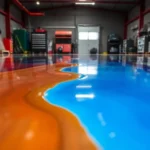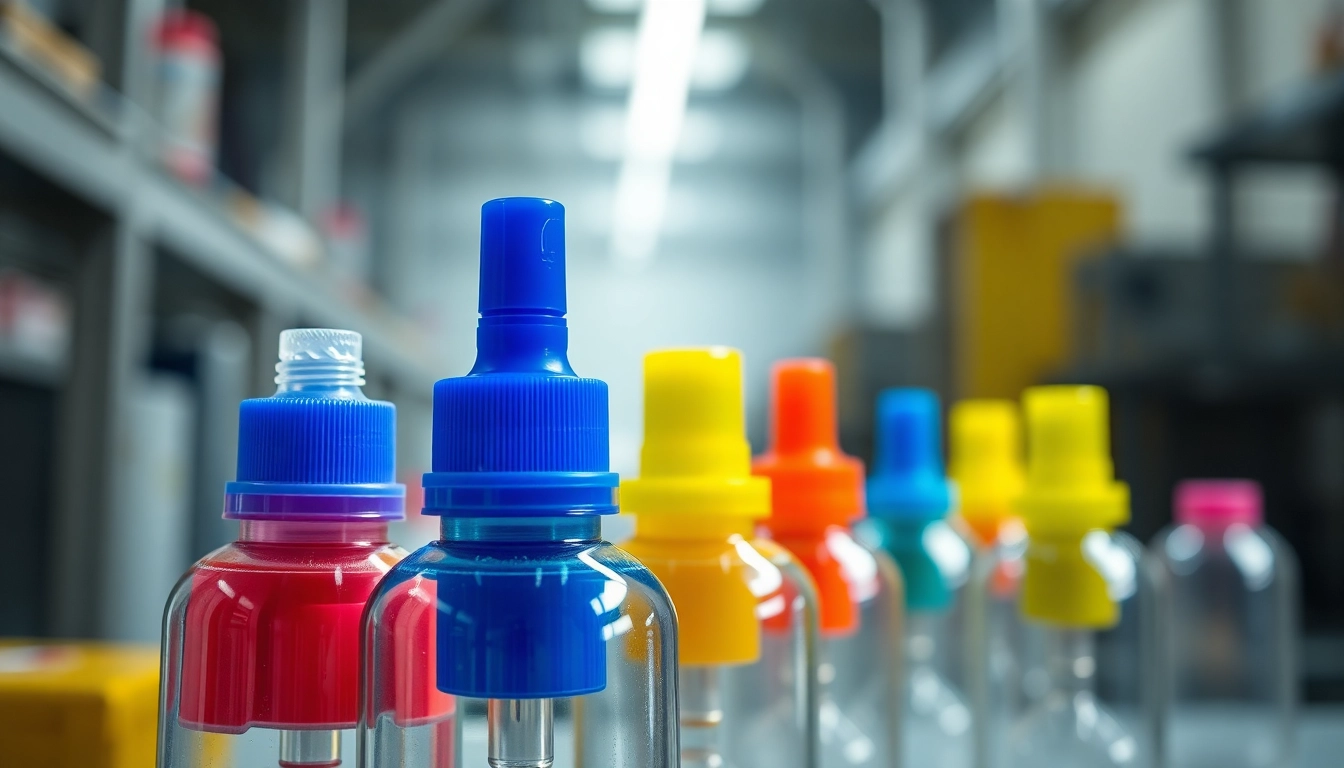Introduction to Polietilen Şişe and Its Applications
Polietilen şişe, a commonly used type of plastic packaging, plays an essential role across diverse industries due to its versatility, durability, and cost-effectiveness. These plastic bottles are primarily manufactured from polyethylene (PE), a polymer known for its excellent resistance to chemicals, flexibility, and lightweight nature. Thanks to these attributes, polietilen şişe are extensively utilized in sectors such as pharmaceuticals, food and beverage, chemicals, cosmetics, and industrial applications.
Understanding the properties and applications of polietilen şişe offers valuable insights into its widespread adoption. Whether storing chemicals, beverages, or medicinal liquids, these bottles provide a protective barrier, maintain product integrity, and facilitate ease of handling. Their adaptability makes them a preferred choice over alternative packaging options, especially when considering factors like environmental impact, safety standards, and consumer convenience.
Understanding Polietilen Material Properties
Chemical Composition and Structure
Polyethylene (PE), the base material for polietilen şişe, is a polymer comprising long chains of ethylene monomers. Its crystalline and amorphous regions contribute to its overall flexibility and strength. Variations in density—such as high-density polyethylene (HDPE) and low-density polyethylene (LDPE)—enable manufacturers to tailor the material properties according to specific needs.
Physical Characteristics
Polietilen şişe exhibit excellent chemical resistance, inertness to acids and bases, and their non-reactivity makes them suitable for storing reactive or sensitive substances. These bottles are lightweight, which reduces transportation costs, and their resilience to impact minimizes breakage—advantages especially significant for handling and distribution.
Health and Safety Aspects
Polietilen is recognized as a safe material for food and medical packaging, as it does not emit harmful substances under normal conditions. According to scientific research, polietilen candidly meets regulatory standards for contact with consumables, making it a hygienic option for various products.
Common Industries Using Polietilen Şişe
- Pharmaceutical Industry: For storing liquids, syrups, and chemical solutions, given their inertness and ability to prevent contamination.
- Food and Beverage: Widely used for packaging water, juices, cooking oils, and condiments. Their transparency allows easy product inspection.
- Cosmetics and Personal Care: For holding shampoos, lotions, and other liquid toiletries.
- Industrial and Chemical Sectors: For chemical storage, including cleaning agents, acids, and solvents, thanks to their chemical resistance.
- Agriculture: As containers for fertilizers and pesticides, emphasizing their durability and safety.
The versatility of polietilen şişe demonstrates their importance across sectors, providing tailored solutions that meet regulatory and functional demands.
Benefits of Choosing Polietilen Şişe over Other Plastics
Durability and Impact Resistance
Compared to glass or certain other plastics, polietilen şişe offer superior impact resistance. They withstand shocks during transportation and handling, significantly reducing product losses due to breakage.
Cost-Effectiveness
The manufacturing process of polyethylene bottles is highly scalable and efficient, enabling mass production at competitive prices. Additionally, their lightweight design cuts down shipping costs and logistical expenses.
Chemical Resistance and Compatibility
Polietilen’s resistance to a wide range of chemicals ensures that contents remain unaltered over time, preventing degradation or contamination. This characteristic is especially crucial in storing aggressive substances.
Environmental Benefits and Recyclability
polyethylene is highly recyclable, and many manufacturers adopt sustainable practices to utilize recycled resin. Proper recycling reduces environmental impact and aligns with global sustainability initiatives.
Customization and Branding Opportunities
Polietilen şişe can be produced in various sizes, shapes, and colors, enabling brands to customize packaging for aesthetic appeal and functional differentiation.
Overall, these benefits make polietilen şişe a superior choice over less resilient or more expensive alternatives.
Types and Sizes of Polietilen Şişe for Different Uses
Standard Capacities and Formats
Polietilen şişe are available in a multitude of standard sizes, ranging from small 50 ml bottles suitable for cosmetics to large 5-liter containers for oils and chemicals. Common formats include:
- 250 ml – often used for cosmetics and small chemical quantities
- 500 ml – typical for beverages and medicinal liquids
- 1 liter – versatile for chemicals, oils, and juices
- 2-liter and above – suitable for bulk storage of industrial liquids
Customizable Options for Specific Requirements
Manufacturers offer customization in terms of shape, color, and printing, allowing companies to tailor bottles to branding and functional needs. For specialized applications such as pharmaceutical or chemical storage, bottles can be engineered with specific neck sizes, cap compatibility, and wall thicknesses to ensure safety and ease of use.
How to Select the Right Size for Your Product
Choosing the appropriate size depends on factors such as:
- Volume of the product to be stored
- Frequency of usage or distribution
- Transport and storage constraints
- Regulatory limits for container sizes in certain sectors
A careful assessment ensures optimal product presentation, cost efficiency, and user convenience.
Manufacturing and Quality Standards in Polietilen Şişe Production
Material Safety and Compliance Certifications
Reputable manufacturers adhere to international standards such as ISO 9001 for quality management, ISO 22000 for food safety, and REACH compliance for chemical safety. These certifications guarantee that the bottles meet safety, hygiene, and environmental guidelines.
Durability Testing and Quality Assurance
Quality control involves rigorous testing for impact resistance, permeability, and transparency. Accelerated aging tests simulate long-term storage conditions to ensure longevity and stability of the bottles in various environments.
Sustainable and Eco-Friendly Manufacturing Practices
Innovations include utilizing recycled polyethylene, reducing energy consumption during production, and designing bottles that are easier to recycle. Implementation of the circular economy principles ensures environmentally responsible manufacturing.
Maintenance, Filling, and Handling of Polietilen Şişe
Best Practices for Cleaning and Reuse
Proper cleaning involves rinsing with compatible cleaning agents, avoiding abrasive materials that could damage the surface, and ensuring full drying before reuse to prevent microbial growth. Reusability depends on product specifications; for example, bottles used for chemicals should not be reused for food.
Proper Filling Techniques to Prevent Contamination
Implementing sterile filling environments, using accurate filling machines, and sealing caps securely are critical to maintaining product integrity. Filling should follow consistent protocols to prevent leaks and spoilage.
Handling and Storage Tips for Longevity
Store bottles in a cool, dry place away from direct sunlight to prevent material degradation. Proper stacking and labeling facilitate inventory management and reduce mishandling risks. Regular inspection for cracks or discoloration helps maintain quality standards.
Market Trends and Future Outlook for Polietilen Şişe
Emerging Innovations in Plastic Packaging
The industry is witnessing advancements such as biodegradable polyethylene, multi-layer bottles for enhanced barrier properties, and smart packaging with embedded sensors for traceability and freshness monitoring. These innovations aim to improve sustainability and functionality.
Environmental Impact and Recycling Initiatives
Growing consumer awareness and stricter regulations drive efforts toward increasing recycling rates and developing eco-friendly alternatives. Initiatives include promoting bottle collection programs and investing in chemical recycling methods that convert waste bottles back into raw materials.
Demand Growth in Pharmaceutical, Food, and Chemical Sectors
The increasing need for safe, reliable, and customizable packaging solutions ensures sustained market growth. As industries prioritize product safety and regulatory compliance, the demand for high-quality polietilen şişe will continue to rise, complemented by technological innovations that address environmental challenges.









